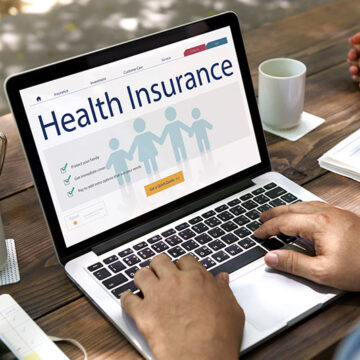Several terms, including “global warming,” “global climate change,” have been used to describe the environmental consequences of collective human activity, most notably steady and historically large increases in greenhouse gases in the Earth’s atmosphere.
The biggest threat in the 21st century is declared as climate change. It has increased health risks from a range of other climate hazards including food, water, vector-borne, zoonotic diseases and poor air quality. Extreme weather events can lead to public health emergencies due to rise in the number of patients admitted which can subsequently pose as health risks to patients and staff as they are exposed to illnesses which maybe contagious. In many regions, more extreme heat events and warmer summers are expected to increase heart-related illnesses and exacerbate chronic diseases.
In the past few years, the world has seen a growing number of extreme climate-related events, including devastating wildfires, floods and hurricanes, with severe consequences for health insurance providers from coast to coast. In addition, your body performs its functions at a certain temperature. During a change in climate, your body is forced to re-adapt itself, thus making it highly susceptible to viruses and infections. You are more vulnerable to catch flu during winters. When the air is cold, the influenza virus thrives and proliferates at a higher rate.
Prevention Tips
Germs can easily spread through many different ways, such as:
- When someone who is sick, coughs or sneezes into the air
- By making direct contact with someone who is sick
- By touching a contaminated object or surface
- Through wild animals and insects, such as dogs and mosquitoes.
A sick person can sometimes spread their germs to others before they even show symptoms. Some simple day to day tips to avoid falling sick are:
– The best way to stop the spread of infection is by cleaning your hands. Your hands can carry germs that you may not be able to see. Therefore, practice good hygiene.
– Avoid sharing personal items, such as hairbrushes, toothbrushes, cups, water bottles, utensils, and razors. Germs can pass through saliva and blood.
– Stay active and make healthy food choices. Doing so makes your body stronger so that it can better fights off germs and prevent infections.
– Stay at home, if you are sick, so you do not spread the illness to others.
One should take the utmost care to prevent the onset of infections and illnesses during climate change. Considering this, you can buy a health insurance policy. Individual insurance policy or family health insurance offers coverage against rising medical expenses, thus financially protecting you at all times. Your insurance provider covers all your medical expenses, so you can focus on your health rather than worrying about the medical bills.
You may either opt for a cashless mediclaim policy or seek reimbursement of the expenses incurred. Either way, your insurance plan will reduce your financial burden. A health insurance policy will take care of your financial protection from hospitalization costs arising due to the treatment of various seasonal illnesses. You should also be on the lookout for a more specific policy such as personal accident insurance if you are at a higher risk to be involved in accidents due to a demanding job.
















